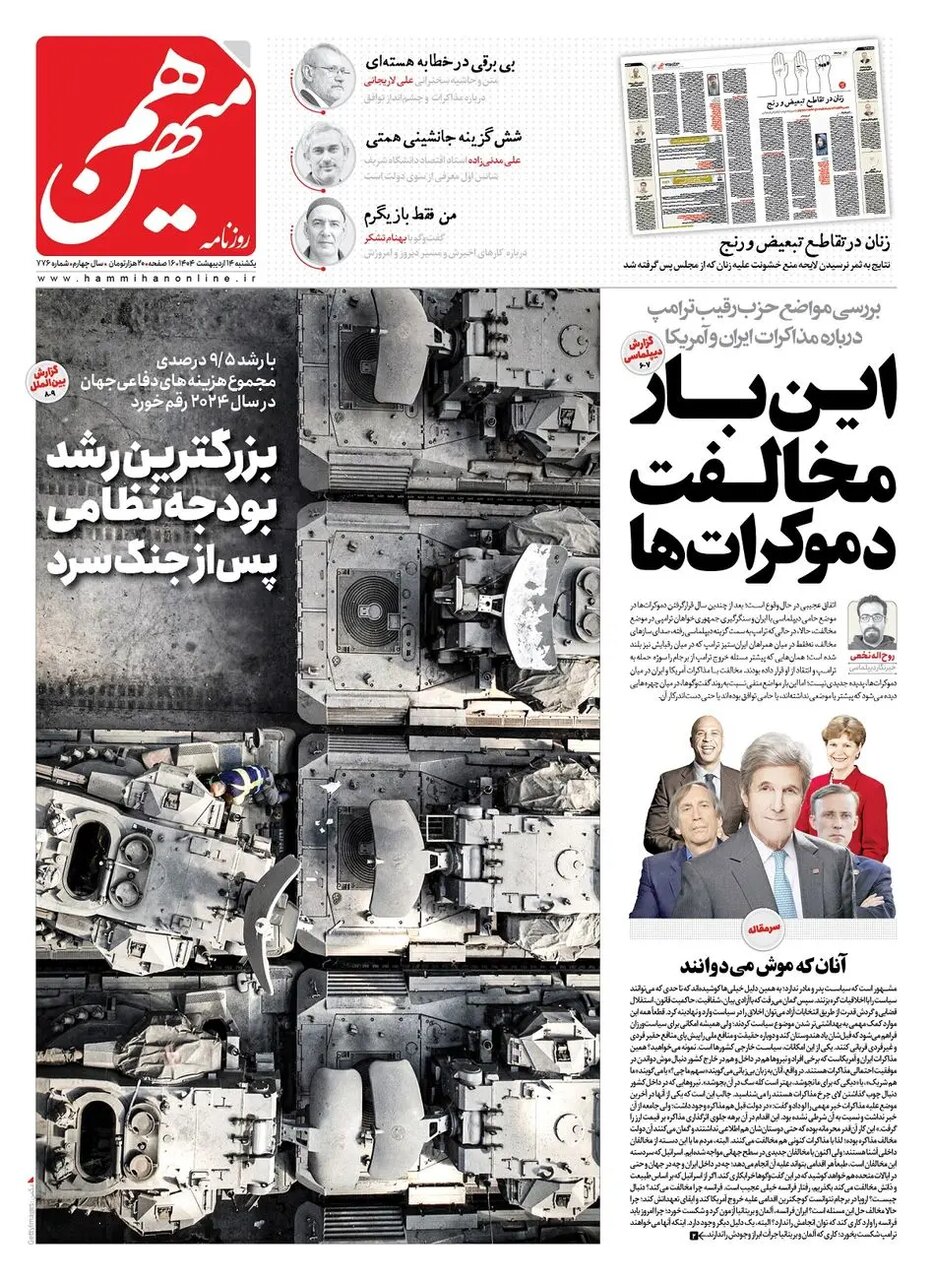Waltz and Rubio are no different

TEHRAN - In an interview with Amir Ali Abolfath, an analyst on American affairs, Ham Mihan discussed the changes in the White House and their impact on the Iran nuclear issue.
He said: We will see the impact of these changes when we face the positions taken by the Americans. That Rubio is replacing Waltz will not change that anti-JCPOA thinking. Waltz was anti-JCPOA enough, and Rubio is in the same group. Regarding Rubio's two recent comments about enrichment and inspection of facilities, it should be said that the Islamic Republic insists that enrichment must be carried out within its own territory. But the degree and extent of it are open to discussion. Iran insists on the right to enrichment. We should also see what Rubio means about American inspectors. If the U.S. government wants to conduct an inspection outside the framework of the IAEA, it is almost certain that the Islamic Republic will not accept it, and this is a challenge.
Sobh-e-No: Israel seeks to cause tension
In an analysis, Sobh-e-No discussed Israel's view of the Iran-U.S. negotiations and wrote: It is clear that Israel is strongly opposed to any agreement between Iran and the U.S. due to its deep concerns about Iran's nuclear program and the geopolitical importance of a possible nuclear agreement. Israel believes that the agreement not only will not prevent Iran from acquiring nuclear weapons, but will also strengthen Iran's economic, military and regional influence by lifting sanctions and change the balance of power to the detriment of Israel and its allies. There is speculation that the reason for changing the venue of the negotiations from Oman to Europe is due to the Zionist regime's hidden policy of eavesdropping on the negotiations. But rather than accepting any unrealistic narrative or psychological warfare that Israel may put forward, especially during the negotiations and implementation of the (possible) agreement, the United States should rely on diplomatic and realistic principles. If the United States looks at the negotiations rationally and adopts its policies based on accurate and fact-based assessments, these negotiations will undoubtedly reach a positive outcome.
Iran: What will happen to Iran-Russia trade relations?
The strategic agreement between Tehran and Moscow has opened a new chapter in the relations between the two countries; it is based on mutual interests and places Iran’s position in the regional geopolitical and energy equations at the center of attention with greater dimensions. The agreement is not just a symbolic statement, but a serious attempt to redefine a strategic relationship based on the requirements of today’s multipolar world. Iran, with its unique position in the heart of the West Asia region, plays a key role in linking the centers of tension and energy. Tehran, with its huge energy reserves, is known as the world’s third-largest oil and second-largest gas producer. Therefore, in a situation in which Russia is facing many tensions with Western countries and NATO due to the war in Ukraine, cooperation with a country like Iran, which is known as the largest regional power in West Asia, has gained double importance for Moscow. Therefore, the strategic agreement is not only focused on energy and economic capacities but is also considered a sign of strategic convergence in the face of rapid changes in the international order.
Arman-e-Melli: Logic of those in favor and against nuclear talks
In a commentary, Arman-e-Melli examined domestic approaches to the Iran-U.S. negotiations and said: Indirect negotiations between Iran and the U.S. are the most important issue of the country’s affairs these days. There are three thinking groups regarding the negotiations with the United States. The first group, which constitutes a significant number of societies, backs negotiations and believes that negotiations with the U.S. are reasonable to lift sanctions and improve the country's conditions. The second group, who is in minority, opposes the negotiations. This group, which is also known as the beneficiaries of sanctions, not only does not consider sanctions as the root of corruption and problems, claims that sanctions provide opportunities. The third group is the moderates, who are more inclined towards the first group and are in favor of negotiation, but within a framework and general policies. However, the reality is that whatever the nature of negotiation is, the three principles of “honor, wisdom, and expediency” are always observed in negotiations.
Leave a Comment